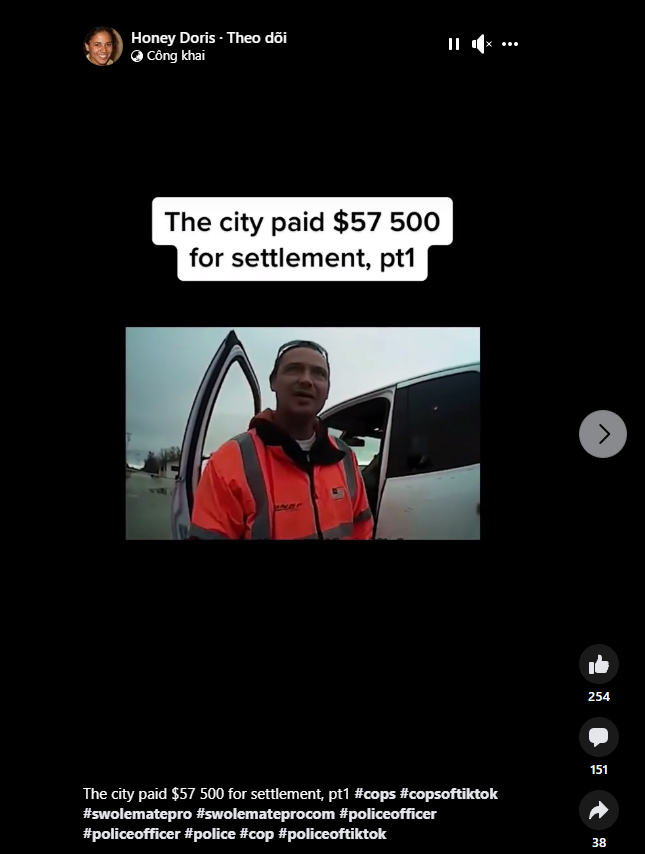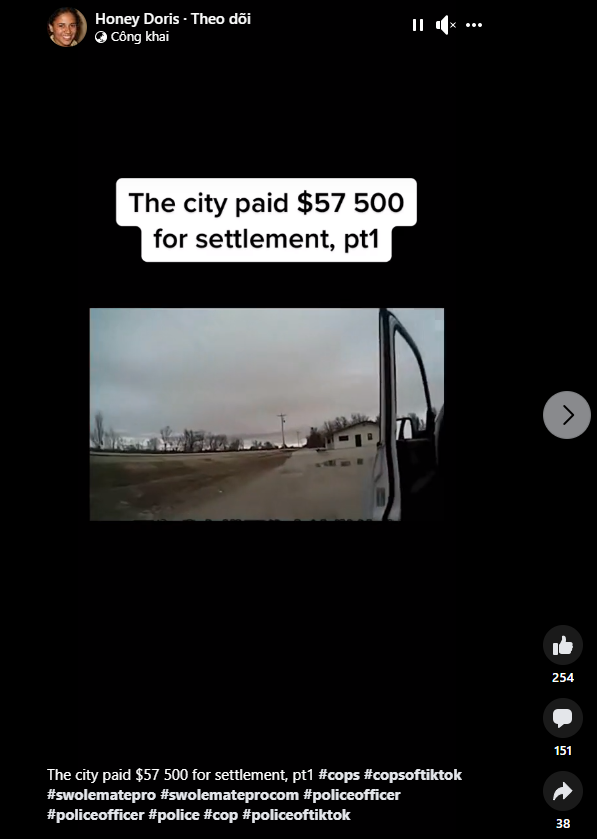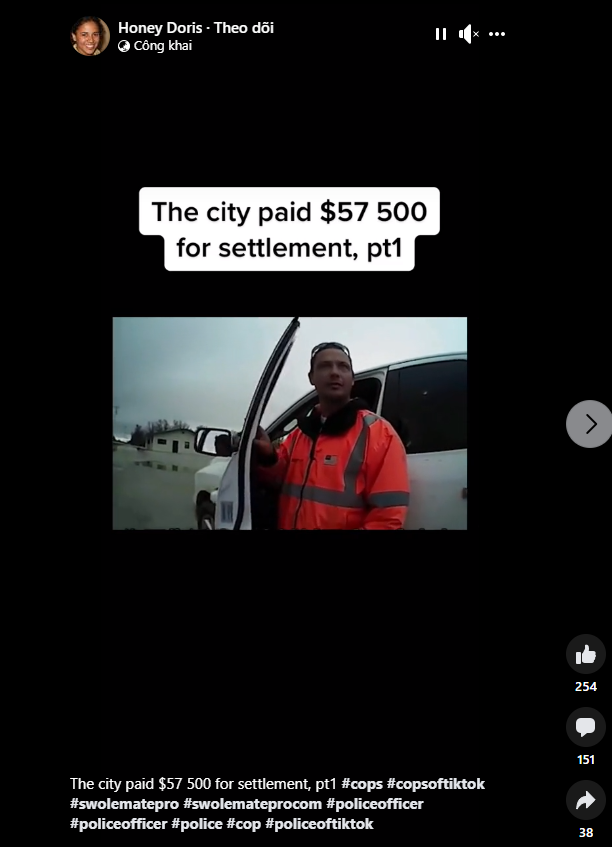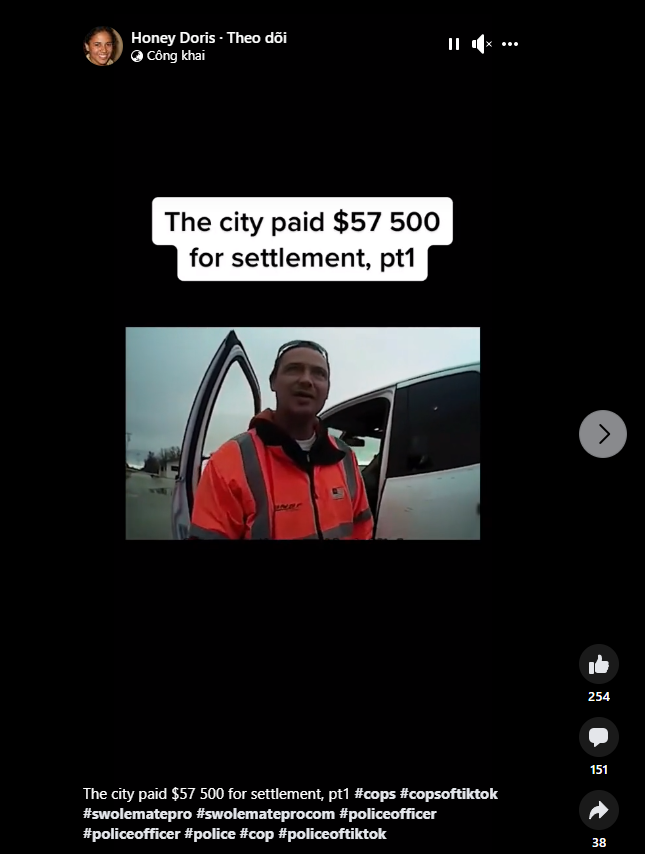Recent news of a $57,500 settlement paid by the city has once again sparked conversations about accountability and police actions in the United States. The comment regarding Colorado’s practice of making officers contribute a portion of settlements resulting from their actions sheds light on an evolving approach to police accountability.

While such policies represent a step in the right direction, they are just one piece of a much larger puzzle. The issue of accountability is complex, involving factors like training, ego, and the relationships between law enforcement and the communities they serve.

Ineffective training and unchecked ego can indeed lead to costly settlements, ultimately burdening taxpayers. It’s a reminder that investing in comprehensive, community-oriented police training is essential to mitigate such incidents.

The notion that individuals have no obligation to answer questions is a fundamental aspect of individual rights. It highlights the importance of respecting the rights of all citizens during interactions with law enforcement.
The hiring process for law enforcement officers is a crucial factor in addressing these concerns. Ensuring that candidates possess the necessary qualities, such as empathy, impartiality, and professionalism, is vital to prevent the hiring of individuals ill-suited for the role.
In conclusion, the intersection of policing, accountability, and public trust is multifaceted and continually evolving. Settlements and financial contributions from officers are steps toward accountability, but they must be part of a broader reform effort that addresses training, attitudes, and hiring practices. Ultimately, creating a system of policing that serves and protects all members of the community is a shared responsibility involving law enforcement, policymakers, and the public.
https://www.facebook.com/reel/2646676425470969

